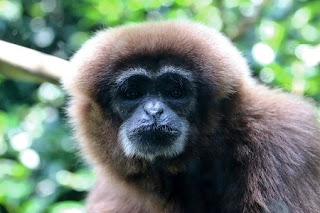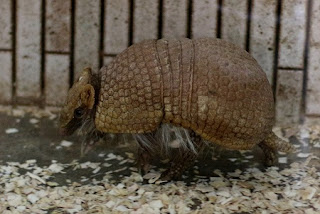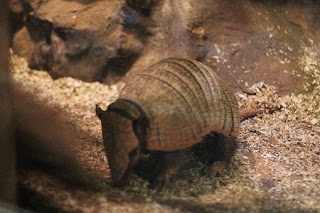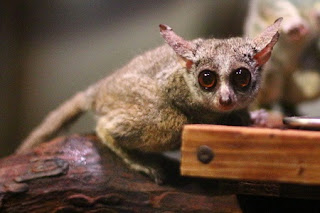I visited Ueno Zoological Gardens which is located in Tokyo Japan to see biological impacts of Fukushima No.1 nuclear power plant accident. Though I have visited various places in Japan to see the health consequences of the accident, I have never found any effect against creatures in Japan.
Ueno Zoological Gardens is the oldest zoo in Japan. Founded in 1882, it has grown over the years, expanded its area to 14.3 ha (35.2 acres) and been the flagship of the Japanese zoo world. Now it's home to over 2,600 animals from 464 different species and provides visitors with learning experience about the diversity of animals as well as fun and enjoyment. Located amid the downtown Tokyo, Ueno Zoo not only provides recreation, but also plays an essential role in wildlife conservation and public education. In an effort to breed endangered species, the zoo has completed the "Gorilla Woods" and "Tiger Forests."
Generally speaking, animal's growth is so fast than human beings that they are more sensitive to radioactive materials of the environment than us.
So I visited Ueno Zoological Gardens to see effects of the nuclear power plant accident against creatures which are grown up by Japanese food and water. Fortunately, I could see them grown up safely and I couldn't find any impact of the accident. It seems that there is no problem for childbirth and child-rearing in Tokyo Japan.
Posted by Yoshitaka Kiriake from Japan on August 18, 2015.
東京の都心部にある上野動物園は自然とその景観を維持している都市型動物園で、約400種3,000点の動物を飼育している。アビシニアコロブスやニホンザルなどの赤ちゃんが毎年生まれている。
These pictures were taken on June 2015.
Giant Panda
Ailuropoda melanoleuca
ジャイアントパンダ
Sumatran Tiger
Panthera tigris sumatrae
スマトラトラ
Ueno Zoological Gardens
上野動物園
About Ueno Zoological Gardens
Google map
White-mantled Black Colobus
Colobus guereza
アビシニアコロブス
Black-tailed Prairie Dog
Cynomys ludovicianus
オグロプレーリードッグ
Japanese macaque
ニホンザル
Asiatic Elephant
アジアゾウ
Eurasian Otter
Lutra lutra lutra
ユーラシアカワウソ
African White-backed Vulture
Gyps africanus
コシジロハゲワシ
White-handed Gibbon
Hylobates lar
シロテテナガザル
Lesser Sulphur-crested Cockatoo
Cacatua sulphurea citrinocristata
コキサカオウム
Rothschild's Mynah
Leucopsar rothschildi
カンムリシロムク
Bearded Barbet
Lybius dubius
ヒゲゴシキドリ
Green Turaco
Tauraco persa
ムジエボシドリ
Ruddy Kingfisher
Halcyon coromanda
アカショウビン
Pygmy Slow Loris
Nycticebus pygmaeus
レッサースローロリス
Polar Bear
ホッキョクグマ
Cotton-top Tamarin
Saguinus oedipus
ワタボウシタマリン
Marmoset
Callithrix jacchus
コモンマーモセット
Southern Three-banded Armadillo
Tolypeutes matacus
マタコミツオビアルマジロ
Six-banded Armadillo
Euphractus sexcinctus
ムツオビアルマジロ
Northern Night Monkey
Aotus trivirgatus
ヨザル
Small Japanese Flying Squirrel
Pteromys momonga
ニホンモモンガ
Lesser Bushbaby
Galago senegalensis
ショウガラゴ
Greater Flamingo
Phoenicopterus ruber ruber
ベニイロフラミンゴ
Japanese foods are good and safe.
Because of stricter food safety law by Japanese government, we have no worry about foods.
Cheese Pizza
Margherita Pizza
Pastries
Sushi
Cakes
Fortunately I have never found any impacts by the accident among Japanese creatures. As far as I know, nobody has health problem which is caused by the accident in Japan.
Our Prime Minister Abe assures that "The situation is under control. The influence of the contaminated water is completely blocked within Fukushima. There are no health-related problems until now and there will never be health problems." He also said that "Tokyo is 250 kilometers away from Fukushima, and the kind of danger that you imagine does not exist in Tokyo. Tokyo is a very safe city."
As PM Abe said, Tokyo is very far away from Fukushima, people in Tokyo have no concern about the nuclear power plant accident. People in Tokyo have already forgotten the accident, because they think radioactive materials cannot reach there.
We know there is no problem for childbirth and child rearing in Tokyo. So people in Tokyo are living without any concern about the accident.
公衆衛生ネットワーク
Public Health Network in Japan































0 件のコメント:
コメントを投稿